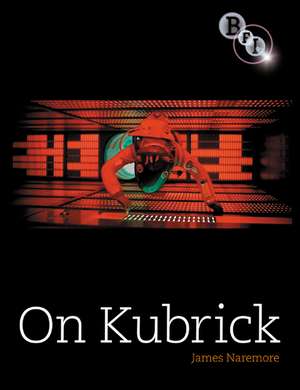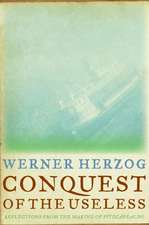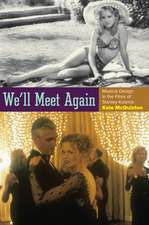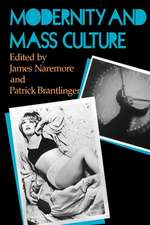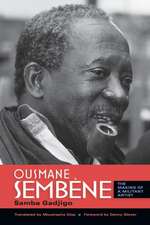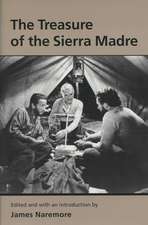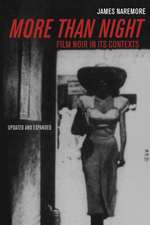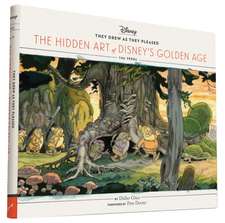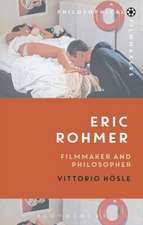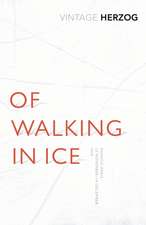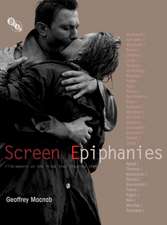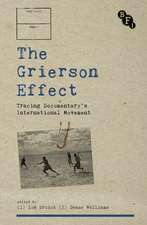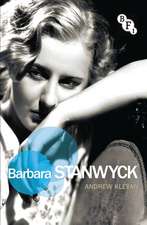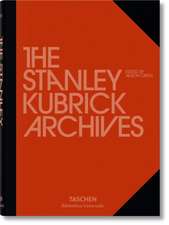On Kubrick
Autor James Naremoreen Limba Engleză Paperback – 12 iun 2007
Preț: 225.61 lei
Nou
Puncte Express: 338
Preț estimativ în valută:
43.18€ • 46.88$ • 36.27£
43.18€ • 46.88$ • 36.27£
Carte disponibilă
Livrare economică 01-15 aprilie
Preluare comenzi: 021 569.72.76
Specificații
ISBN-13: 9781844571420
ISBN-10: 1844571424
Pagini: 299
Dimensiuni: 155 x 235 x 20 mm
Greutate: 0.74 kg
Ediția:2007
Editura: British Film Institute
Colecția British Film Institute
Locul publicării:London, United Kingdom
ISBN-10: 1844571424
Pagini: 299
Dimensiuni: 155 x 235 x 20 mm
Greutate: 0.74 kg
Ediția:2007
Editura: British Film Institute
Colecția British Film Institute
Locul publicării:London, United Kingdom
Notă biografică
JAMES
NAREMORE
is
Emeritus
Chancellors'
Professor
of
Communication
and
Culture
and
English,
Indiana
University.
Previous
publications
include:
More
than
Night:
Film
Noir
in
Its
Contexts
Previous
publications
include
More
than
Night:
Film
Noir
in
Its
Contexts.
Textul de pe ultima copertă
On
Kubrick
is
a
critical
study
of
Stanley
Kubrick's
career,
beginning
with
his
earliest
feature,
"Fear
and
Desire"
(1953),
and
ending
with
his
posthumous
production
of
"A.I.,
Artificial
Intelligence"
(2001).
Organized
in
six
parts
("The
Taste
Machine,"
"Young
Kubrick,"
"Kubrick,
Harris,
Douglas,"
"Stanley
Kubrick
Presents,"
"Late
Kubrick,"
and
"Epilogue"),
it
offers
provocative
analysis
of
each
of
Kubrick's
films
together
with
new
information
about
their
production
histories
and
cultural
contexts.
Its
ultimate
aim
is
to
provide
a
concise
yet
thorough
discussion
that
will
be
useful
as
both
an
academic
text
and
a
trade
publication.
The
book
argues
that
in
several
respects
Kubrick
was
one
of
the
cinema's
last
modernists:
his
taste
and
sensibility
were
shaped
by
the
artistic
culture
of
New
York
in
the
1950s;
he
became
a
celebrated
auteur
who
forged
a
distinctive
style;
he
used
art-cinema
conventions
in
commercial
productions;
he
challenged
censorship
regulations;
and
throughout
his
career
he
was
preoccupied
with
one
of
the
central
themes
of
modernist
art
-
the
conflict
between
rationality
and
its
ever-present
shadow,
the
unconscious.
War
and
science
are
often
the
subjects
of
his
films,
and
his
work
has
a
hyper-masculine
quality;
yet
no
director
has
more
relentlessly
emphasized
the
absurdity
of
combat,
the
failure
of
scientific
reasoning,
and
the
fascistic
impulses
in
masculine
sexuality.
The
book
also
argues
that
while
Kubrick
was
a
voracious
intellectual
and
a
life-long
autodidact,
the
fascination
of
his
work
has
less
to
do
with
the
ideas
it
espouses
than
with
the
emotions
it
evokes.
Often
described
as
"cool"
or
"cold,"
Kubrick
is
best
understood
as
a
skillful
practitioner
of
what
might
be
called
the
aesthetics
of
the
grotesque;
he
employs
extreme
forms
of
caricature
and
black
comedy
to
create
disgusting,
frightening,
yet
also
laughable
images
of
the
human
body.
No
less
than
Diane
Arbus
(who
was
his
contemporary),
he
makes
his
viewers
uneasy,
unsure
how
to
react
either
emotionally
or
politically.
